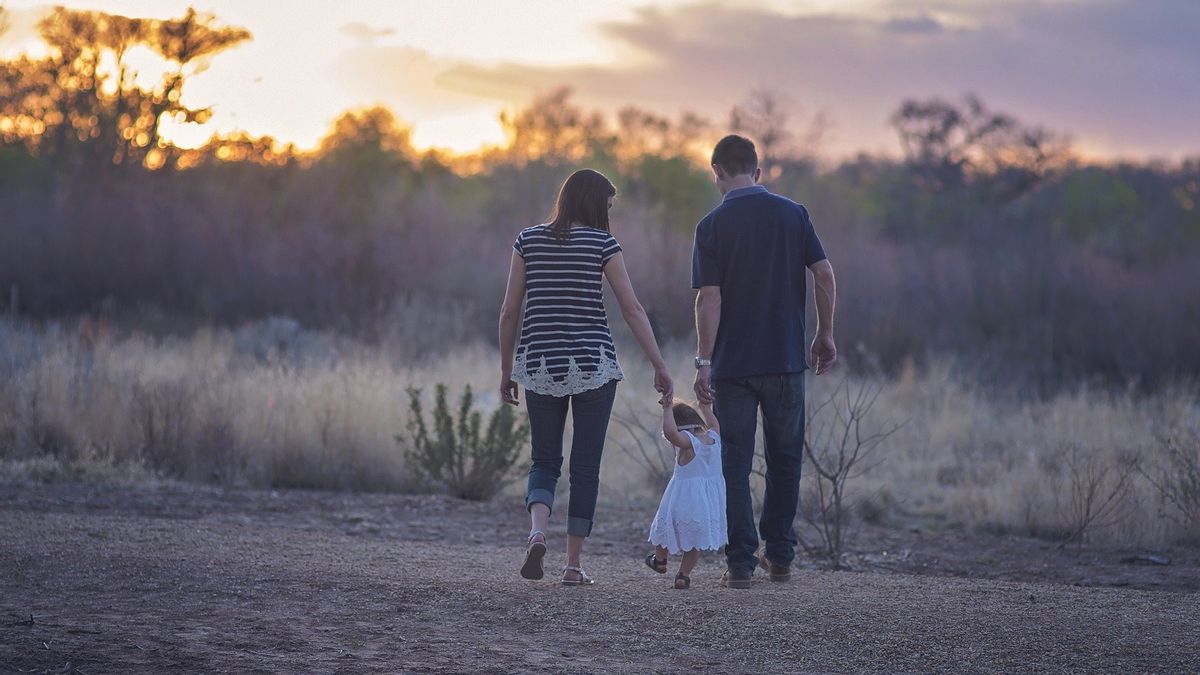JAKARTA - The spread of the corona virus or COVID-19 in the world is a public concern. This concern should be conveyed by parents to their child in an easily accepted explanation. Moreover, the government issued a policy so that children do not study at school, but at home
University of Indonesia psychologist Rose Mini Agoes Salim said, in providing education about the corona virus to children, especially toddlers, parents must be creative. This can be done with props such as dolls or other objects.
By using this media, parents can tell the dangers and patterns of the spread of COVID-19. The hope is that their children can understand about this virus that originated in China.
"(Understanding) that we can do in a very easy and very easy way, namely using a doll or using a funny video or using something," said Rose Mini in a press conference broadcast live via YouTube, Thursday, March 19.

Meanwhile, to provide understanding to older children, discussion can be done. In the speaker, parents must provide all known information to the child. Previously, parents were advised to ask their children about their knowledge of COVID-19.
From the child's answer, parents know where to start providing information about the dangers and spread of the corona virus. In delivering this information, parents are not allowed to tell the number of deaths due to this virus. The reason is, so as not to give the effect of fear to children. Parents are encouraged to tell about COVID-19 sufferers who are battling this virus and recover and return to their activities.
"Don't give information that the corona virus will definitely die. This is not appropriate to be given to children. But what we are giving is that we focus on understanding that the corona virus can be prevented and cured. Also emphasize that people who have the virus have proof that they are cured," said Rose Mini.
Healthy lifestyles
In addition to providing information or understanding about the dangers and spread, parents must also provide information or measures to prevent transmission of the virus. Parents can start by asking their children to adopt a healthy lifestyle.
For example, by maintaining body hygiene, starting from eating nutritious foods to exercising. Then, also emphasize the child, by maintaining a good lifestyle, so that the transmission rate will be smaller.
"The next step is to invite children to adopt a healthy lifestyle, apply a healthy lifestyle that maintains personal hygiene and their environment, including healthy food and exercise," said Rose Mini.

Then, also talk about ways to meet other people. Children must be taught to keep a distance from the interlocutor or their friends. In addition, ask them to use masks and wash their hands when handling other people's objects.
However, when delivering it, it must be accompanied by reasons why you should wash your hands and keep your distance. Because, what is feared is if the child misunderstands the information conveyed.
"Tell the children the precautionary steps to take so they don't get this virus, for example by washing their hands regularly, and teach them in a good way," said Rose Mini.
The English, Chinese, Japanese, Arabic, and French versions are automatically generated by the AI. So there may still be inaccuracies in translating, please always see Indonesian as our main language. (system supported by DigitalSiber.id)









